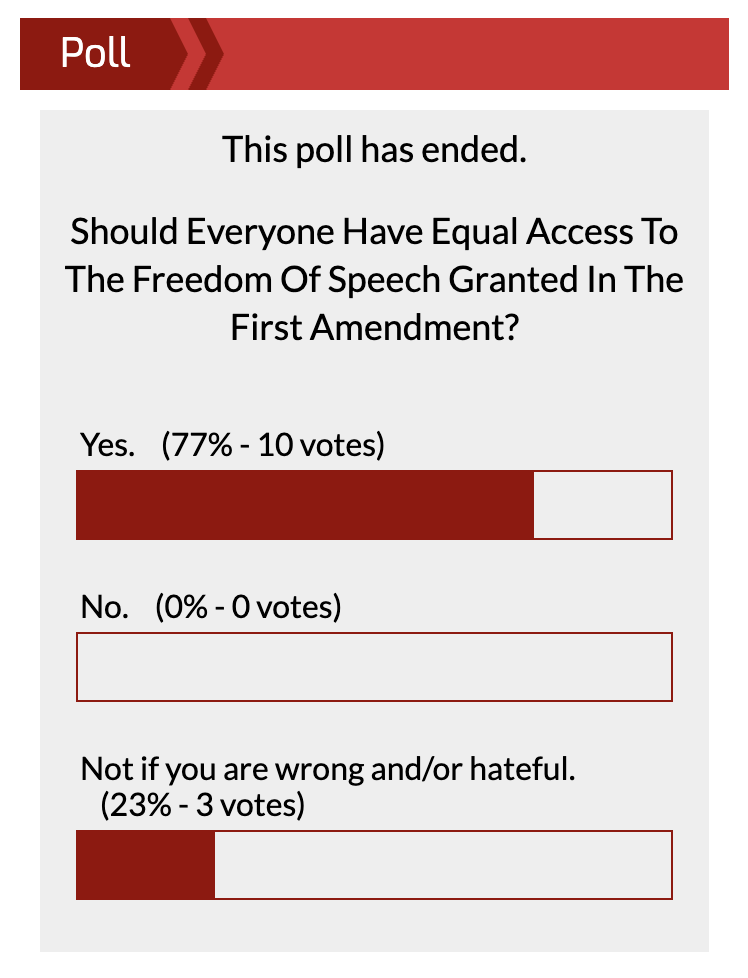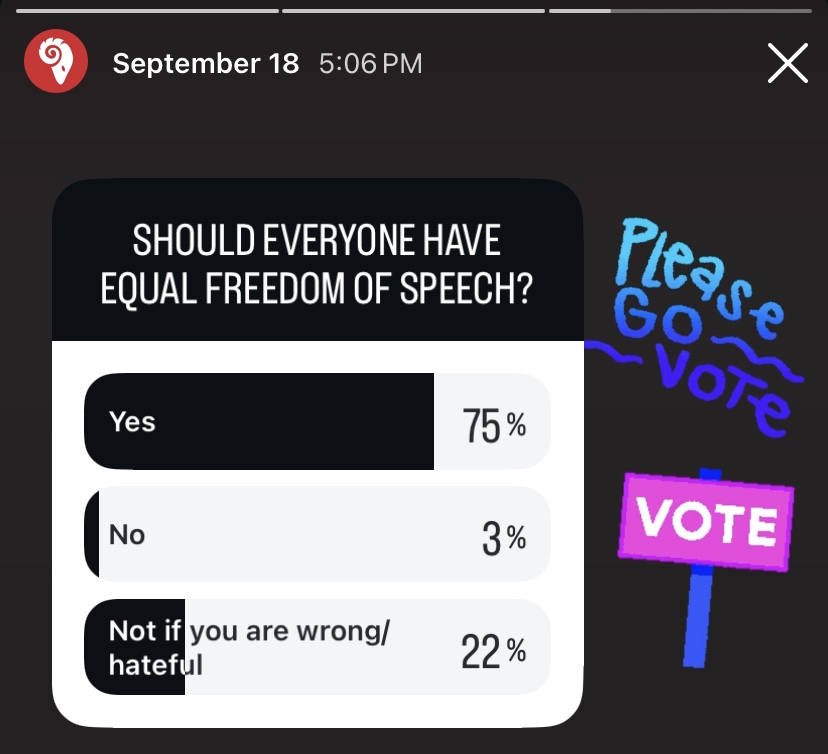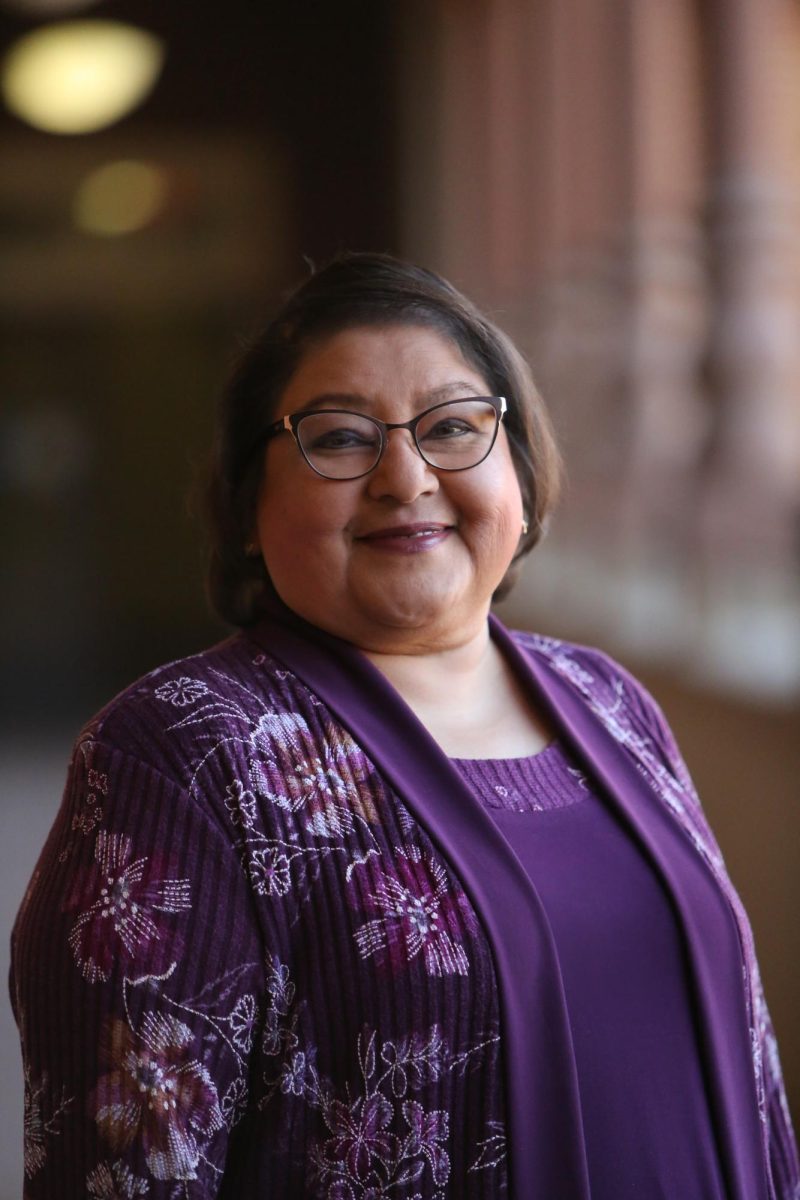In the weeks following the death of Charlie Kirk, I’ve heard a lot about the importance of his right to free speech. I’ve heard that he was someone who died unjustly, defending his own beliefs. The United States Senate and House of Representatives just passed a “National Day of Remembrance” for the man, and Sen. Rick Scott wrote that “Mr. Kirk consistently promoted the values of individual liberty, open debate, the importance of civic engagement, and the defense of constitutional principles.”
If this is true, if Charlie Kirk cared so much about constitutional principles and open debate, would he agree to silence those who disagreed with him? From entertainers to airline pilots, teachers to healthcare workers, visa holders to journalists, no one is safe to speak their mind.
Workers of all demographics have been fired for comments made away from the office or on social media criticizing Kirk, but the Constitutional First Amendment is intended to protect all speech, regardless of who it offends.
The Rampage recently conducted two different polls, asking the Fresno City College community a simple question across two different platforms: “Should everyone have equal access to the free speech granted in the First Amendment?”
On Instagram, 75% (45 people) voted “Yes,” whereas only 22% (13 people) voted “Not if you are wrong or hateful.” On our website, the statistics are about the same, with 77% (10 people) voting “Yes” and 23% (3 people) voting “Not if you are wrong or hateful.” Most people seem to agree that the interest of fairness outweighs censorship.


If every social media post had to be completely truthful and free from spiteful language, then the official White House Instagram account would need to be taken down. Almost every day a new post is released with AI-generated content that grossly misrepresents any given situation. People seem to have forgotten that President Donald Trump was forced to post on Truth Social after he was banned from Twitter and Facebook in 2021, due to “the risk of further incitement of violence,” Twitter said in a statement.
But despite all this, the current administration is practically immune to punishment. Unlike citizens, they are able to regulate and censor speech, ignoring a specific presidential action called “Restoring Freedom of Speech and Ending Federal Censorship” that went into effect the same day Trump entered office. Embarrassingly, both aforementioned points promised in this action have been completely ignored.
Not only has the common worker been stomped into a state of constant paranoia, but the very history of our nation is at stake of being erased as well. Trump has reviewed the Smithsonian Institution, the world’s largest museum, education and research complex. Trump and his lawyers have attacked historical museums for being too “woke,” a made-up term now largely used by conservatives that are too afraid to have healthy conversations with minority groups.
According to a letter written to Lonnie G. Bunch III, the secretary of the Smithsonian Institution, the initiative “aims to ensure alignment with the President’s directive to celebrate American exceptionalism, remove devise or partisan narratives, and restore confidence in our shared cultural institutions.” In reality, the initiative will reduce the authenticity of these historical museums to push a harmful and exclusionary agenda.
“Everything discussed is how horrible our Country is, how bad Slavery was, and how unaccomplished the downtrodden have been,” Trump wrote on Truth Social last month. “We have the ‘HOTTEST’ Country in the World, and we want people to talk about it, including in our Museums.”
That doesn’t sound like the writing of a nonpartisan voice. It sounds like someone who wants to shield Americans from their own complex history, a history that wouldn’t have been made possible without the diverse voices of people from all backgrounds. Diverse voices that depended on their right to free speech to make history.
But for Trump, inclusive representation is the same as “divisive, race-centered ideology.” If this administration successfully transforms our museums into a “symbol of inspiration and American greatness,” then the National Museum of African American History and Culture will have the same educational value as an episode of “The Boondocks.”
Trump wants to have a hand in every narrative, preventing citizens from even distinguishing fact from fiction. The constitutional freedom of the press is arguably the most important feature of the First Amendment. Without a free press, citizens won’t be educated enough to hold leaders accountable, they won’t be able to trust news organizations, and most importantly, the voices of the marginalized and oppressed won’t be properly accounted for. There are too many people in the world for CNN and Fox News to keep track of.
Trump has been using the public’s distrust in the media to his advantage. Trump has cut grants to organizations like the U.S. Agency for Global Media. He has shown his willingness to sue any news outlet that reports an inconvenient truth. He will deny access to reputable media organizations like the Associated Press. And he will always have Truth Social to shovel his grammatically shameful insults at his perceived enemies.
Recently, the Pentagon placed new restrictions on journalists covering the U.S. military, requiring news organizations to only report information that was approved for release. If reporters don’t follow these new restrictions, they are liable to get their press credentials revoked. This sets a truly terrifying precedent.
Journalists must reserve the right to tell the stories that some people don’t want to hear. For every Charlie Kirk there is another Jerry Williams, another Pedro Garcia, another Melissa Hortman. But without a free press, these victims of gun violence would be quickly forgotten, their stories lost to time and shrugged away in order to “restore confidence in our shared cultural institutions.”
See, that’s the thing about the Constitution; some parts fit better than others. When it comes to the Second Amendment, every American’s right to bear arms is crucial in order to “protect our other God-given rights,” according to Kirk himself. But when it comes to the First Amendment, those rights can be forgotten when it’s most convenient.
Think of the next generation of children. How will they feel when they start to ask the difficult questions and parents won’t feel comfortable enough to answer? How will they feel when they first hear about a school shooting and the adults are too desensitized to talk about it? If we can’t all even agree with the idea that slavery was a bad thing, how are the children supposed to make sense of right and wrong?
Violence should never have to be the answer. Conversation should lead to understanding which should lead to tolerance. But if this administration continues to halt our conversations, citizens will continue to feel pressured to enact change in other, more aggressive ways. We the people can’t afford to be silenced into submission. We need to keep having these uncomfortable conversations in the hopes that someone will start listening.
If Charlie Kirk can speak to millions of students to fearmonger about “prowling Blacks” and frame Islamic people as a “threat to America,” then we the people should have the right to talk back.
“You should be allowed to say outrageous things. You should be allowed to say contrarian things…regardless of who is in power in this country, you guys can challenge and you guys can speak openly. That is the bedrock of a liberal democracy,” Kirk said.






